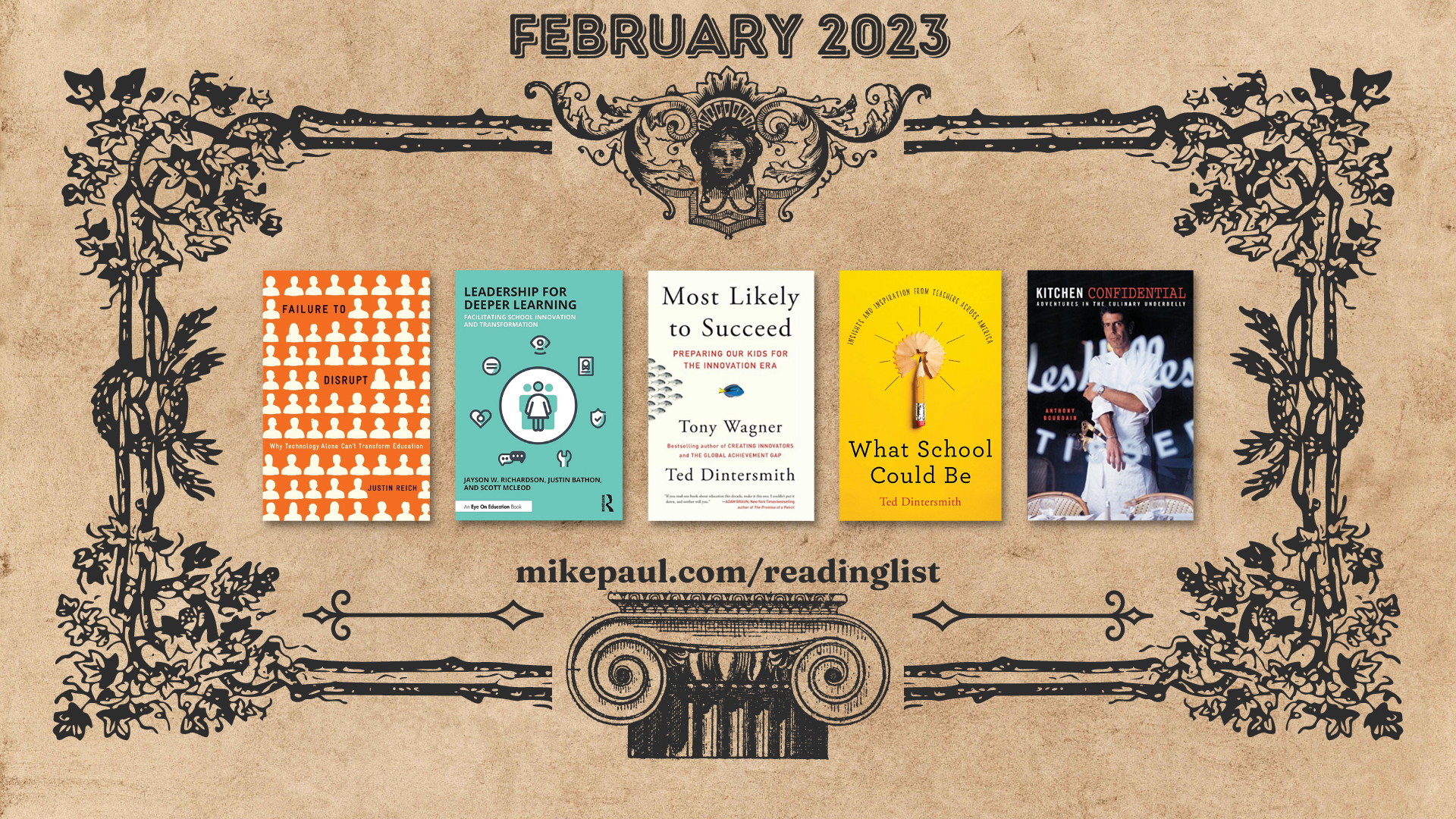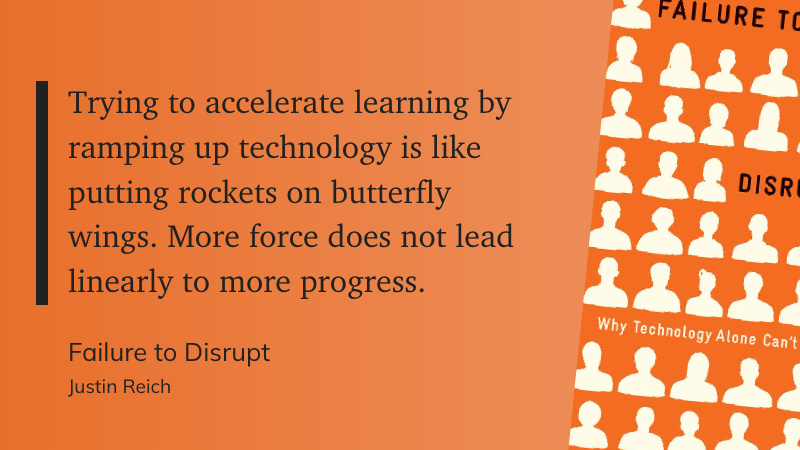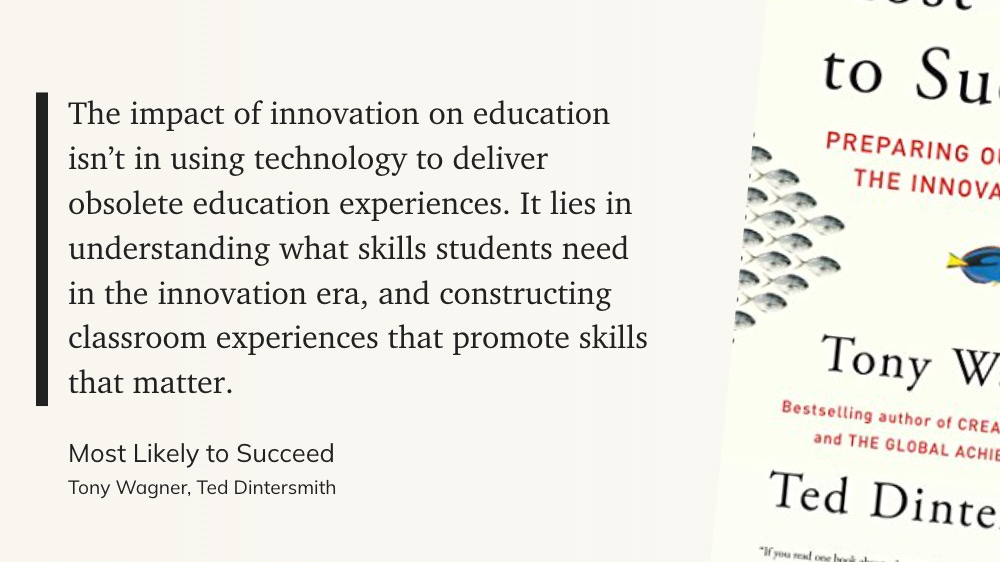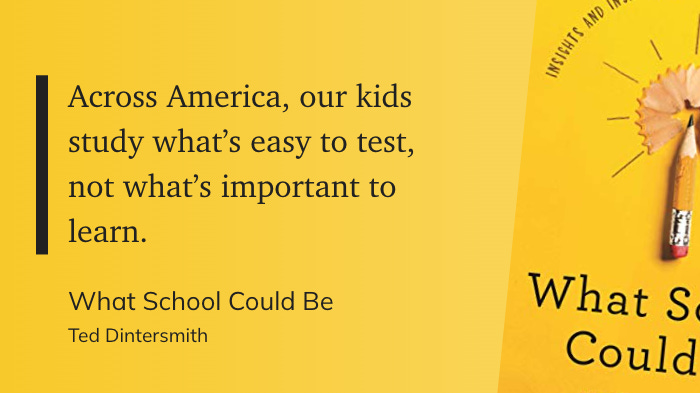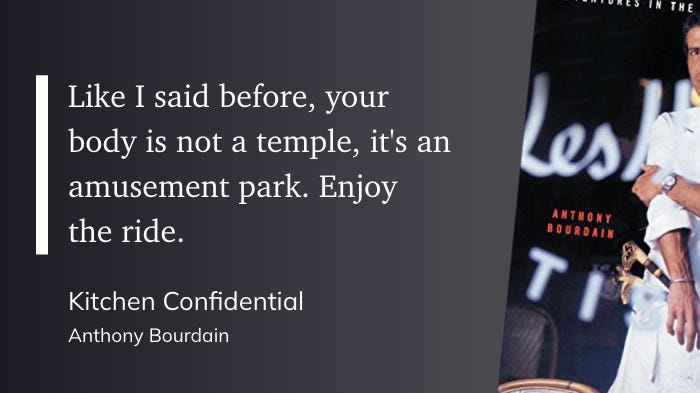Two things came to mind as I began compiling this month’s reading list: deeper learning in schools and the power of embracing your authentic self. The first one is, of course, on my mind pretty much every day. Any work that I have done in education has ultimately been centered on creating deeper learning experiences for students.
Second, the idea of embracing your authentic self is important to me since I spent the majority of my life not being my authentic self. Growing up in an environment in which I was expected to do “the right thing”—a pretty subjective idea—and what I wanted to do wasn’t easy. I’m getting there, but there haven’t been many of my 46 years on this planet that have been guided by my own passions and thoughts.
Now, on to this month’s book recommendations:
Failure to Disrupt
If there was ever a book that arrived at the perfect time in the education world, it’s this one.
In this book, Justin Reich argues against the idea that technology can completely change schools and how students learn. He does this by describing and analyzing different educational technologies in a realistic way. Reich draws on his positions at Harvard and MIT to provide unparalleled insight into the progress of these trends and their limitations in practice.
This book sheds light on the issues with educational technologies, such as the various approaches and tools developed by technologists. It offers valuable insights into what to consider when adopting, utilizing, and implementing technologies in different educational settings, especially during the era of virtual learning and social distancing.
In Failure to Disrupt: Why Technology Alone Can’t Transform Education, the author questions the ability of educational technologies to bring transformative changes to education. Despite the promises of affordable, accessible, effective, and engaging education for all students, the author points out the inconsistencies in enrollment and completion of online courses and the limited benefits for students from low socioeconomic statuses. The author also highlights four challenges: the Curse of the familiar, the trap of routine assessments, the EdTech Matthew effect, and the toxic power of data and experiments.
The book’s last chapter, “Conclusion: Preparing for the Next Learning-at-Scale Hype Cycle,” is key. The author urges readers, including educators, administrators, policymakers, and technologists, to carefully evaluate educational technologies and be cautious of tools that claim to be transformative. To do so, he poses the following questions: 1) What’s new? 2) Who guides the learning experience? 3) Is the pedagogy trying to fill pails or kindle flames? 4) What existing technologies does it adopt? He also emphasizes the need to examine how and when technological tools can be incorporated into students’ learning processes and warns against factors that could hinder learners’ abilities to achieve desired results.
Failure to Disrupt offers compelling arguments on educational technology, examining the hype and laying the foundations for a promising future in the field.
Leadership for Deeper Learning
Full disclosure on this one: I am lucky to call all three of the authors who collaborated on this project friends. Even if I didn’t have that connection, I’d still recommend this book to you. It’s a fantastic look at innovative schools and what they are doing to create deeper learning experiences for students.
This book examines how leaders have introduced, maintained, and advanced innovative, deeper learning opportunities in their schools.
Schools are changing to be more action-oriented, focused on performance, digitally relevant, and democratic. This book highlights innovative practices across seven categories: vision, agency in learning, trust in teachers, openness to new ideas, over-communicating change, equity-mindedness, and courage to live outside norms.
Leadership for Deeper Learning explores how school leaders can create new learning environments for students and teachers, with practical strategies and stories to inspire change and innovation.
Most Likely to Succeed
While this book has been around for a bit, the message is no less relevant today than it was in 2015, perhaps more so in the wake of COVID-19
Most Likely to Succeed looks at the problems with the US education system and suggests ways to better prepare future generations for the age of innovation, such as changing the way we teach and what we teach.
According to Tony Wagner and Ted Dintersmith, schools are not equipping students with the skills they need to succeed as ethical citizens and productive employees, and they are also forcing them to learn useless information superficially. Wagner and Dintersmith say that this makes it harder for students to follow their passions and get real-world experience. They also say that it makes teachers unhappy and keeps society divided along class lines.
The key message of Most Likely to Succeed is this: although society is advancing at an astonishing speed, our education system is stuck in the nineteenth century. Consequently, we’re educating our children to succeed in a bygone era. To give our kids the opportunity to succeed, we must creatively reimagine education for the innovation era.
What Schools Could Be
In What Schools Could Be, Ted Dintersmith shares solutions he discovered while traveling to 50 states, 200 schools, over a hundred community forums, and a thousand meetings. The book talks about innovation in K–12 education, online learning, colleges and universities, and short-term immersive experiences. It’s a great way to learn about the American educational innovation landscape.
In Dintersmith’s model, a great school has four parts (PEAK):
- Purpose: Where students do actual important work.
- Essentials: There’s a backbone to what they’re learning that they’ll need in the future.
- Agency: Students are in charge of their learning and are intrinsically motivated.
- Knowledge: Everything learned is deep and retained, they are creators and teach others what they know
Kitchen Confidential
I miss Anthony Bourdain almost as much as I miss Tom Petty, which is a lot. I’m sure as you reach this section you’re asking yourself, “What the hell is a book about line cooks doing amongst books about education?”
Allow me to try and explain…
The book takes the form of a biography chronicling Bourdain’s time in the culinary industry. Interspersed with cooking advice, it covers the love between a chef and sous-chef, as well as the chef’s relationship with delusional owners. The biography takes you through Bourdain’s childhood and his realization, while in France, of the importance of food. It then follows his journey from his start in the culinary industry, through culinary college, and up the ranks of various chef positions until he eventually runs his own kitchen with, as he puts it, “brigades of pirates, degenerates, and thieves.” Filled with wild anecdotes of kitchen misbehavior, drugs, sex, rock and roll, more drugs, and truffle oil, the book illustrates the hardships of the industry, including long hours, injuries, and sexual harassment, and how people still choose to do it. One particularly powerful chapter towards the end of the book goes blow-by-blow through an average day in the life of a chef.
While the life of an educator doesn’t have nearly the entertainment value of the life of a chef, there are certain parts of the job that are difficult, frustrating, and perhaps even maddening. The relationships between teachers and students, the demands on teachers’ time, meaningless mandates from far-away misguided legislators, and the never-ending grind of the school year can have many teachers feel like they are on the line. And maybe they are.
But in the relentless pursuit of making something great, there are always obstacles. There are always trying times. There will always be something to improve, whether that is a 7th-grade math lesson or an exclusive dish at a Michelin-star restaurant.
Maybe I’m crazy, but I thoroughly enjoyed this inside look at a madcap world that so many of us will never experience or understand. It’s all fun stuff. The anecdotes, characters, and asides are crazy enough that Bourdain wouldn’t need to be a great writer to make them work. But he is a good writer with a unique voice and a dry sense of humor that makes his TV shows stand out. Together, these elements make the book not only an interesting read but also a real pleasure. I laughed out loud numerous times throughout.
Honorable Mentions
I can’t talk about being your authentic self and driving for what you really want in life without mentioning The War of Art, the modern classic on overcoming Resistance and becoming the creative genius you were meant to become. And if you’re wanting to dive deeper into discovering your authentic self, you should add Daring Greatly and The Gifts of Imperfection by Brene Brown to your list, along with Victor Frankl’s classic Man’s Search for Meaning. I’d also recommend Flow as a way to get the most out of your creativity and reach your fullest potential.
I hope you enjoyed this month’s reading list! Remember, reading is a great way to expand your knowledge and understanding of the world. Whether you’re interested in education, leadership, or just looking for a good memoir, there’s something on this list for everyone. So, grab a book and start reading!
